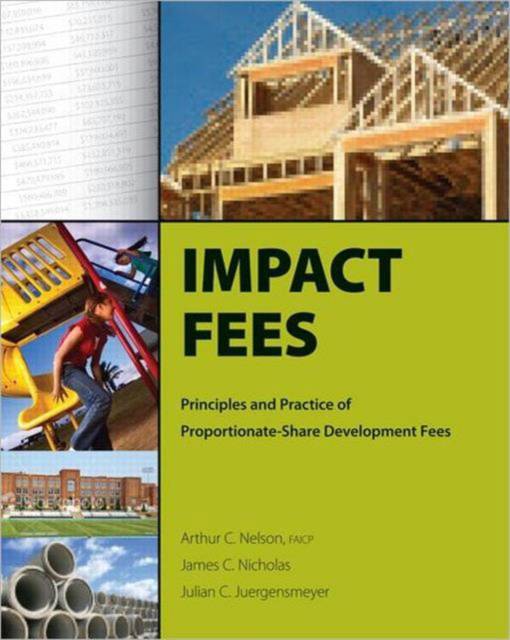
- Afhalen na 1 uur in een winkel met voorraad
- Gratis thuislevering in België vanaf € 30
- Ruim aanbod met 7 miljoen producten
- Afhalen na 1 uur in een winkel met voorraad
- Gratis thuislevering in België vanaf € 30
- Ruim aanbod met 7 miljoen producten
Zoeken
Impact Fees
Principles and Practice of Proportionate-Share Development Fees
Arthur C Nelson, James C Nicholad, Julian C Juergensmeyer
Hardcover | Engels
€ 202,95
+ 405 punten
Uitvoering
Omschrijving
This is the only impact fee book you'll need for the next decade or longer! This comprehensive reference book updates the popular, pioneering works on impact fees by introducing new methodologies, concepts, applications, and theories. The authors contend that it's time to go beyond narrowly defined impact fees to proportionate-share development fees broadly applied to publicly provided facilities and services and their operation. Impact fees are one-time charges applied to new development to generate revenue for the construction or expansion of capital facilities outside the boundaries of the new development for system improvements engendered by the new development. At least that was the traditional use of impact fees. A generation ago, they were generally not used legally for the operation, maintenance, repair, alteration, or replacement of capital facilities; for social purposes such as affordable housing and daycare; or for "green" purposes such as habitat preservation. This book updates impact fee law, practice, and applications, and breaks new ground by showing how the impact fee logic of proportionate share can be used for these and other purposes. Through actual ordinances, summaries of technical reports, numerous case studies, and model ordinances and codes, readers will learn how to design and implement a proportionate-share development fee program. This is essential reading for anyone interested in impact fees.
Specificaties
Betrokkenen
- Auteur(s):
- Uitgeverij:
Inhoud
- Aantal bladzijden:
- 432
- Taal:
- Engels
Eigenschappen
- Productcode (EAN):
- 9781932364552
- Verschijningsdatum:
- 1/05/2009
- Uitvoering:
- Hardcover
- Formaat:
- Genaaid
- Afmetingen:
- 221 mm x 282 mm
- Gewicht:
- 1238 g

Alleen bij Standaard Boekhandel
+ 405 punten op je klantenkaart van Standaard Boekhandel
Beoordelingen
We publiceren alleen reviews die voldoen aan de voorwaarden voor reviews. Bekijk onze voorwaarden voor reviews.











